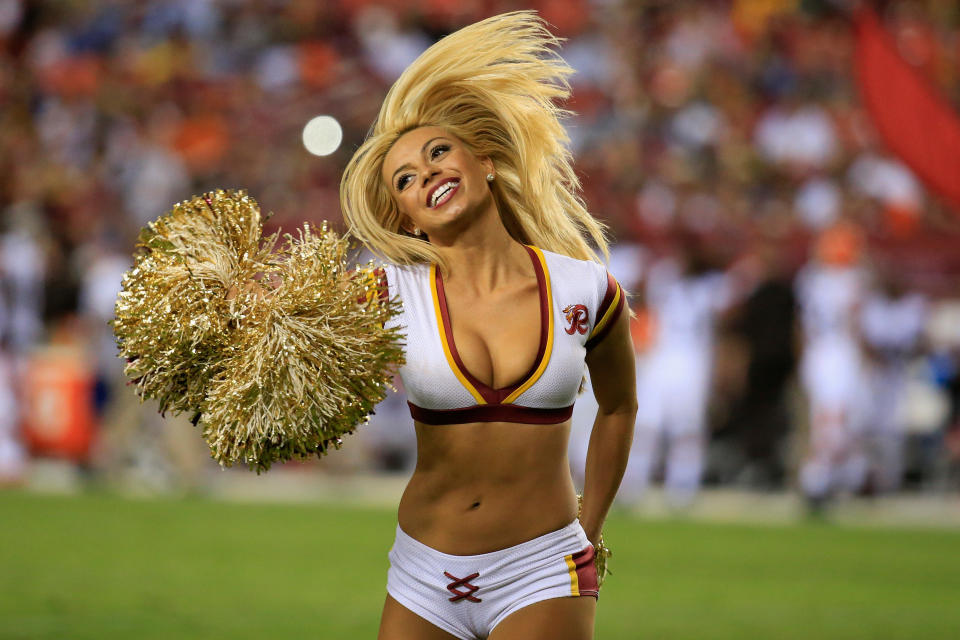'Required to be topless': Shocking report on NFL cheerleaders
With some NFL teams’ rules for cheerleaders and general treatment of that group under scrutiny, The New York Times published an eye-opening story that detailed claims of many inappropriate and uncomfortable moments for Washington Redskins cheerleaders during a 2013 trip to Costa Rica.
The story, written by Juliet Macur, said that during a trip for the cheerleader calendar photo shoot, the cheerleaders “were required to be topless” and an all-male group of sponsors and FedExField suite holders “were granted up-close access to the photo shoots.”
“They weren’t putting a gun to our heads, but it was mandatory for us to go,” one of the cheerleaders told The Times.
“We weren’t asked, we were told. Other girls were devastated because we knew exactly what she was doing.”
Macur said she spoke to five cheerleaders who were on the trip as well as others who heard descriptions of the trip and corroborated the details.
One evening, Macur wrote, the squad’s director told nine of the 36 cheerleaders that some of the sponsors had “picked them to be personal escorts at a nightclub.”

That nightclub trip did not involve sex, The Times said, but Macur wrote that several of the cheerleaders began to cry when told.
One cheerleader said she felt as if the arrangement amounted to “pimping us out”.
“It’s just not right to send cheerleaders out with strange men when some of the girls clearly don’t want to go,” another cheerleader told The Times.
“But unfortunately, I feel like it won’t change until something terrible happens, like a girl is assaulted in some way, or raped. I think teams will start paying attention to this only when it’s too late.”
Longtime director of the Redskins cheerleaders Stephanie Jojokian disputed details of the trip, saying the trip to the nightclub was not mandatory and the cheerleaders who went weren’t picked by sponsors.

Two cheerleaders who were on that trip and were made available to The Times by the team told Macur that Jojokian didn’t force the cheerleaders to do anything they didn’t want to do.
The Redskins told The Times the cheerleaders were paid nothing for the weeklong trip other than transportation costs, meals and lodging.
The trip was seen as mandatory for the cheerleaders, the story said.
After the Costa Rica trip some cheerleaders left the squad, saying they felt “worthless and unprotected,” The Times wrote.

The Times has previously written about complaints from NFL cheerleaders about treatment. At least two have filed discrimination complaints.
Former Saints cheerleader Bailey Davis, who filed a complaint with the Equal Employment Opportunity Commission, told The Times about a Saints handbook for cheerleaders with strict and outdated rules on fraternising with players and social media rules that required them to block players from following them.
The Redskins provided a statement to The New York Times that said: “The Redskins’ cheerleader program is one of the NFL’s premier teams in participation, professionalism, and community service. Each Redskin cheerleader is contractually protected to ensure a safe and constructive environment. The work our cheerleaders do in our community, visiting our troops abroad, and supporting our team on the field is something the Redskins organisation and our fans take great pride in.”

